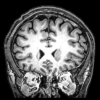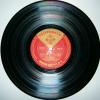My insurance covers it and I’m starting next week. 20-30 minute sessions five times a week for six weeks total. I’ve looked into this a lot and I’m very excited. Directly stimulating neurons in the prefrontal cortex for treatment resistant depression sounds amazing but I’m also using it to help restore my mesolimbic system i’m stimulant/amphetamine abuse.

#1
Posted 15 February 2019 - 11:47 PM
My insurance covers it and I’m starting next week. 20-30 minute sessions five times a week for six weeks total. I’ve looked into this a lot and I’m very excited. Directly stimulating neurons in the prefrontal cortex for treatment resistant depression sounds amazing but I’m also using it to help restore my mesolimbic system i’m stimulant/amphetamine abuse.
#2
Posted 16 February 2019 - 06:57 PM
For amphetamine abuse, you could always try BPC-157, but before trying that check twice if you have any tumors/cancer, because it speeds up growth of existing illness due to angiogenesis.
Edited by Azet, 16 February 2019 - 06:58 PM.
sponsored ad
#3
Posted 17 February 2019 - 02:56 AM
For amphetamine abuse, you could always try BPC-157, but before trying that check twice if you have any tumors/cancer, because it speeds up growth of existing illness due to angiogenesis.
Ye I have some bpc. I’m mainly going to use the TMS for helping with Adderall reduction but more so depression, anxiety,etc.. as I had some of the symptoms before Adderall but it made it worse.
#4
Posted 17 February 2019 - 09:43 PM
Keep us updated John250, the insurance in the Netherlands doesn't cover it yet but I'm really interested if it helps for depression.
Back in 2016 I joined a 10 days TMS/placebo study for negative symptoms. Turned out I had the real treatment but it didn't help at all.
-edit- oh wait.. in some cases TMS for depression does get covered by insurance since 2017.. Well.. If that's the case, I'm on it! ![]()
Edited by YoungSchizo, 17 February 2019 - 10:06 PM.
#5
Posted 18 February 2019 - 05:07 AM
I am trying either TMS or ECT for my depression very soon, I believe it is covered by insurance here in Australia. If the doctor decides TMS is worth trying, I will also post an update with my results over the next few weeks.
#6
Posted 19 February 2019 - 09:17 PM
#7
Posted 22 February 2019 - 04:40 AM
So it turns out I am doing ECT because it has a better response rate than TMS. So far I’ve had two sessions and can feel a difference already. My mood has improved and I’m finding I can concentrate better. No adverse cognitive effects to report as of yet.
I do suffer from depression but part of my illness also comes from the negative symptoms of schizophrenia. So it would seem a course of ECT is applicable.
Edited by mono, 22 February 2019 - 05:25 AM.
#8
Posted 22 February 2019 - 05:28 AM
Is your treatment-resistant depression of the anhedonic variety?
If so ,OFC or DMPFC TMS may be a better option,as standard TMS does not seem to be as effective for this type of depression. If electing for DLPFC TMS, then it might be a good idea to do the treatment bilaterally.
I wish you luck anyway
Edited by link11, 22 February 2019 - 05:29 AM.
#9
Posted 24 February 2019 - 02:04 AM
Is your treatment-resistant depression of the anhedonic variety?
If so ,OFC or DMPFC TMS may be a better option,as standard TMS does not seem to be as effective for this type of depression. If electing for DLPFC TMS, then it might be a good idea to do the treatment bilaterally.
I wish you luck anyway
I'm the anhedonic type, what do you recommend?
#10
Posted 24 February 2019 - 04:15 AM
Edited by John250, 24 February 2019 - 04:16 AM.
#11
Posted 24 February 2019 - 10:41 AM
I'm the anhedonic type, what do you recommend?
According to Dr Downar, anhedonia has many different "versions" with different underlying network traffic,therefore there is no one size fits all approach.
However, it seems that standard DLPFC TMS is least likeliest to work for people with anhedonia.
http://www.gatewayps...with-anhedonia/
Then there is this paper that says that the OFC is heavily implicated in sending anti-reward projections and can suppress the pro reward network of the brain.
https://www.clinical...-annual-meeting
This seems to suggest that the DMPFC or OFC regions may be a better alternative.
Personally I would choose the OFC, as there is another paper with conflicitng evidence of DMPFC TMS working for anhedonics. OFC rTMS can work for people who have failed to respond to multiple forms of TMS and are severely treatment-resistant,which nearly all people with anhedonia are, to various degrees.
But OFC TMS is done at low frequency in order for there to be an inhibitory effect rather than activating.
It seems logical that in anhedonia, your brain has become stuck in a negative feeback loop which suppresses your reward system. Therefore silencing those anti-reward projections may allow your reward system to come back online.
But you will likely need maintenance treatments.
As for the OP, probably just wise to stick to standard DLPFC rTMS.
#12
Posted 25 February 2019 - 09:11 PM
I just started it too. Same protocol. I like it so far!
#13
Posted 28 February 2019 - 12:11 AM
#14
Posted 14 May 2019 - 02:43 PM
Any updates from those who were trying TMS?
#15
Posted 14 May 2019 - 02:53 PM
#16
Posted 20 May 2019 - 02:09 AM
#17
Posted 20 May 2019 - 03:01 AM
1. TMS is nonsenical at best, there was only one ancedotal study on the improvement and the aggregate improvement score was barely .63 which is laughable improvement relative to the placebo group. It's just a marketing ploy so they can take advantage of the naive ADD people seeking non-medicinal treatment which we are in dire need of sense medication has so many crappy side-effects. 1000$ for treatment that they don't even know why it works with minimal benefit. Don't waste your money on it.
sponsored ad
#18
Posted 21 May 2019 - 05:25 AM
It’s way too early to notice anything in fact most don’t notice improvements until The 5-6th week and after that. It was $16,000 my insurance covered 90%.
I am once again for the hundredth time tapering off Amphetamines and hoping TMS will make it easier but after talking to a few doctors it seems the TMS will be more beneficial once I’m actually “off” amph.
Most insurance allows you to repeat it every 90days but due to my negligent prescription of Adderall (110mg/day) I’m able to repeat it every 30-60days after the 6 week treatments.
I actually don’t have much hope on it helping me currently but after Ive been “off” amph for a month or so it should start helping then.
TMS is currently FDA approved for treatment resistant depression and I believe it just got approval for OCD. It’s also in the works for FDA approval on the cessation of smoking. So I highly doubt it’s a hoax and insurance companies would not be dishing that type of money out if it was. I think there will be a lot more to it in the future as it’s relatively new.
Edited by John250, 21 May 2019 - 05:31 AM.
Also tagged with one or more of these keywords: tms
Science & Health →
Brain Health →
Therapies for Amp tolerance/withdrawal/restorationStarted by John250 , 24 Feb 2019 |
|

|
||
Science & Health →
Brain Health →
NeuroInterface →
People with experience with TMS therapy?Started by floweryriddle , 28 Sep 2017 |
|

|
||
Science & Health →
Brain Health →
NeuroInterface →
Trans-cranial Magnetic SitmulationStarted by Zorak03 , 01 Apr 2013 |
|

|
||
Science & Health →
Brain Health →
Mental Health →
psychosomatic disorders, TMSStarted by docTorpedo , 06 Nov 2012 |
|

|
||
Science & Health →
Brain Health →
Meissner reference pattern creates higher resolution MRI (also magnetically activated drugs)Started by treonsverdery , 30 Aug 2012 |
|

|
16 user(s) are reading this topic
0 members, 16 guests, 0 anonymous users















































